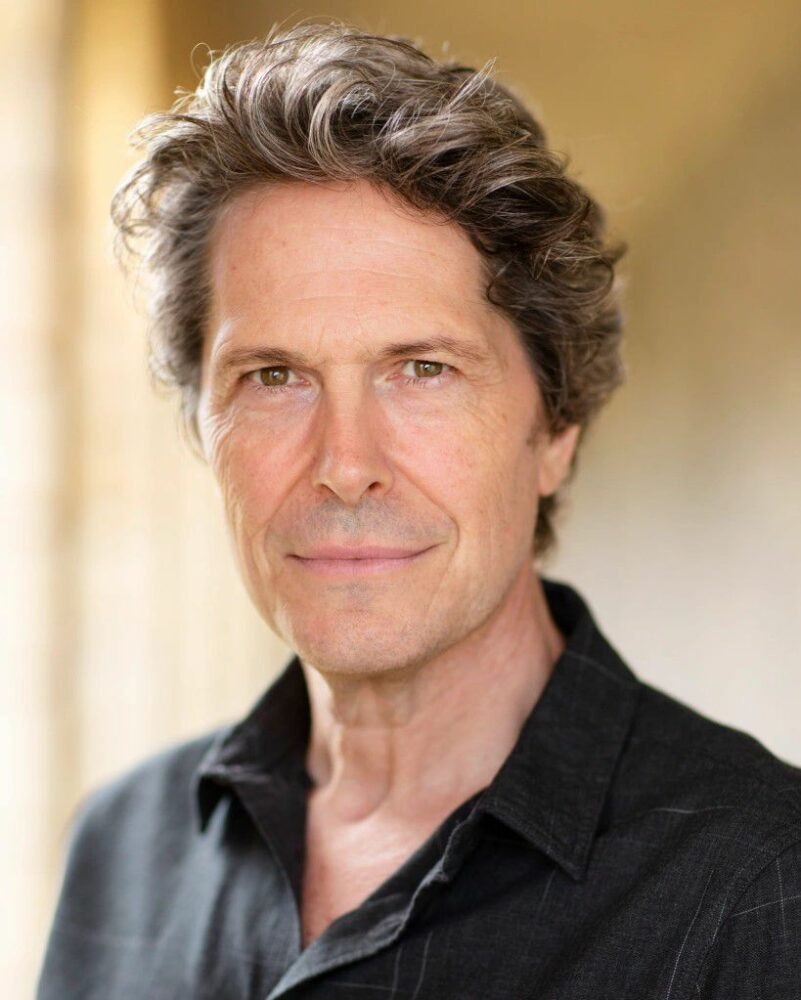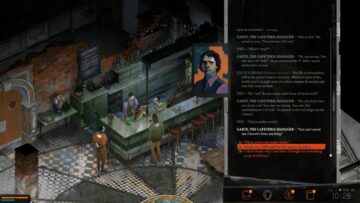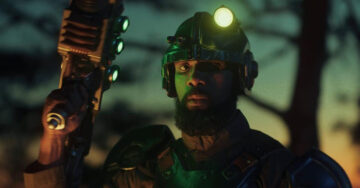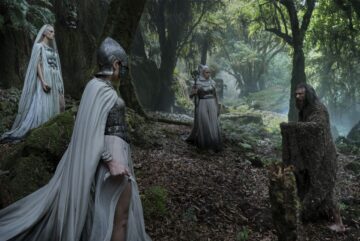Neil Roberts is a great many things in the world of acting. He’s an accomplished soap opera actor in the U.K., a villain in the classic series Charmed, a performer on countless radio dramas, and a stage actor, and he’s been in a lot of stuff going back over three decades — including an early Marvel film called Nick Fury: Agent of Shield, alongside Germany’s favorite import, David Hasselhoff.
You might not know that he’s also a voice actor in a few video games, including Baldur’s Gate 3. Despite how much of Roberts’ work you’ve likely heard, you might not even realize it’s him. That’s because he’s one of the custom voices you can select during character creation, specifically Tav 5. He’s also the main voice of the tortured Dark Urge, a character some players believe is the best possible origin choice when playing Larian Studios’ overwhelmingly popular role-playing game.
How does a classically trained actor from the Old Vic Theatre School find himself talking about chopping up hands and gleefully kicking squirrels? According to Roberts, voice acting in games wasn’t even that big of a stretch after spending time early in his career doing radio plays for the BBC alongside people like Brian Blessed and Judi Dench.
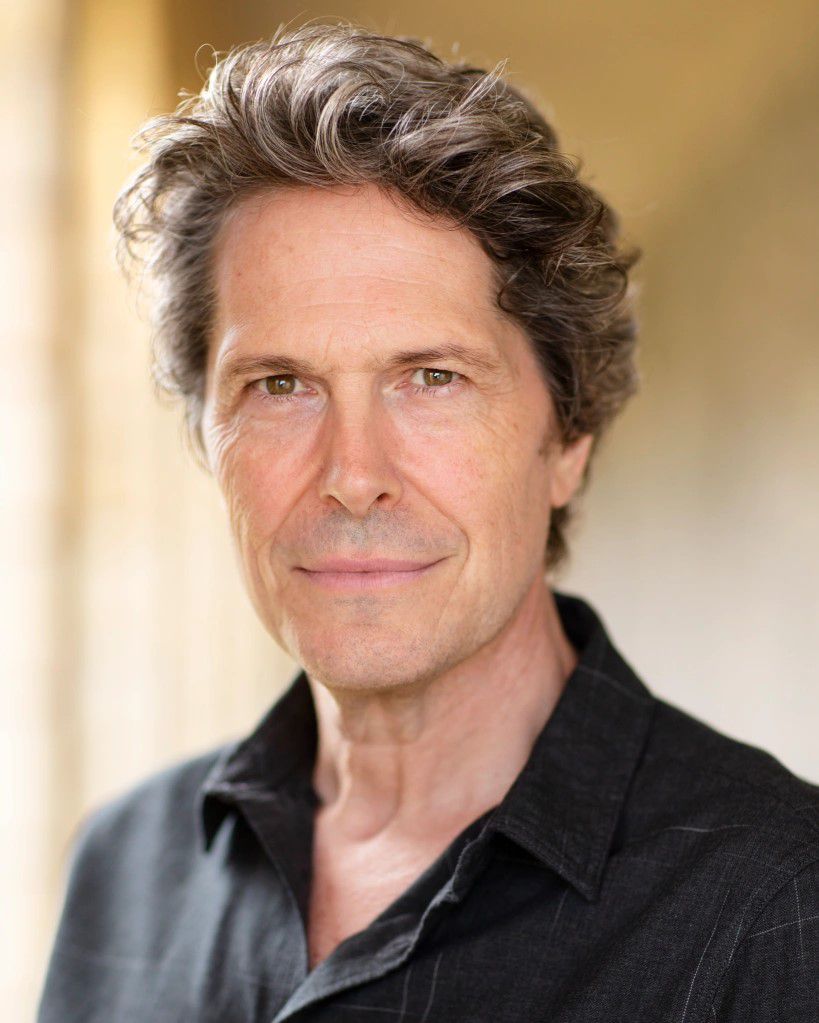
“I would do three or four radio plays a week for months and months, so I did over 100 over the course of a year, including things like trying to play 60-year-old pirates while in my early 20s,” Roberts said.
Describing this time to me over a video call, Roberts talked about how his initial experiences in front of a microphone were filled with a self-consciousness he doesn’t feel when acting alongside other people, because of the deadness of the air when you’re on your own reading lines. “There is nothing worse for an actor than being self-conscious, all that chatter in the back of your head while you’re trying to immerse yourself in something; it was horrific.”
However, he kept getting invited back to those radio plays, despite having done so many that they all blurred together, so he must have been doing something right. He learned a lot during this time, including how to read and act more or less on the spot. Unlike film, TV, or theater, there’s no time to learn lines in radio, especially when you’re doing multiple recordings a week. That skill translated well to video game voice acting and Baldur’s Gate 3 in particular, in which Roberts effectively had to play three characters.
You might think of Tav, the main custom character, as being only one character, but that’s not really the case. To reflect the range of choices you can make, the actors voicing your custom character need not only to voice them as Tav, albeit with different undertones, but also as the illithid version of Tav. Plus, they’re doing this more or less on their own, with no other actors around.
“I think what lots of people don’t realize is that it’s all very isolated,” Roberts said. “You are in a room on your own in your little onesie with the glowing balls everywhere and special gloves with chips in to capture your hand movements, and cameras all over the place capturing your every movement. As a result, you have the screen in front of you and your dialogue. But you literally have to use your imagination, which again goes back to radio.”
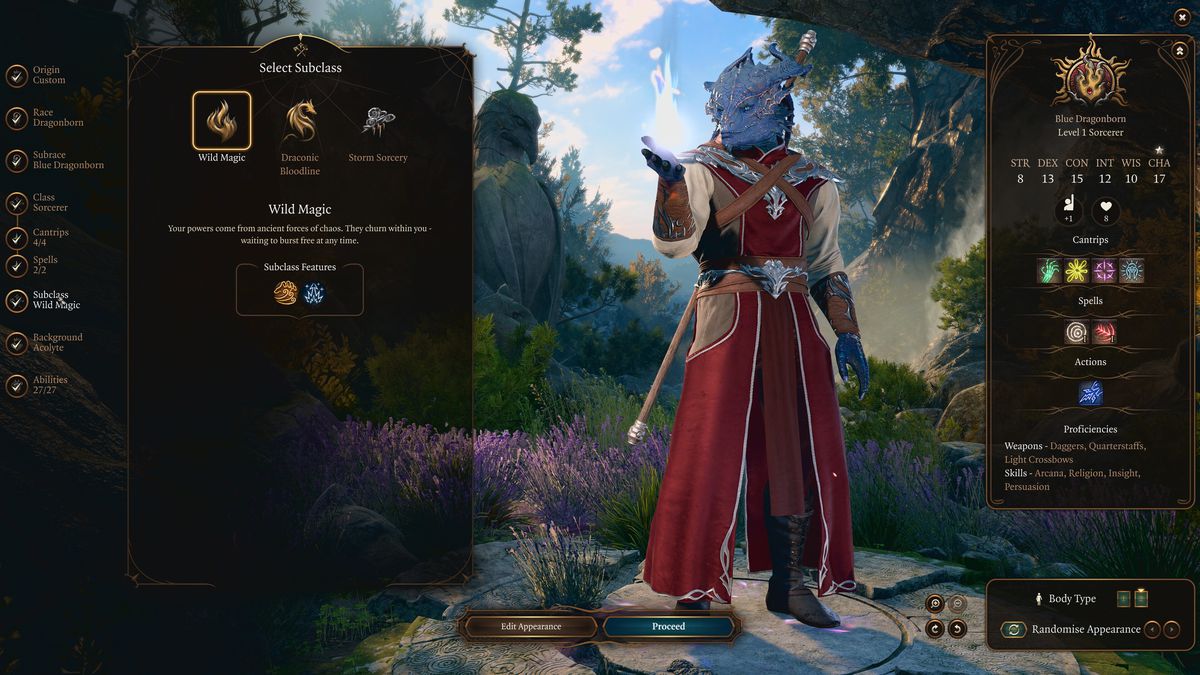
Imagination is something Neil needed plenty of in his role as Tav, because Tav isn’t a character as such. We define who they are as we play them, so all of the Tav actors needed to be everything all at once, not to mention having to record three versions of several lines and perform the motion capture for each of those three as well. Talking about recording each potential version of each line, Roberts said, “So you would probably do something similar. But it didn’t have to be the same. Right? As long as it went with the line because it didn’t have to match anything, of course. But so, in that way, it’s quite freeing.”
Roberts mentioned that he has ADHD, although he only recently managed to get a proper diagnosis. Given the nature of Tav, I asked if he felt his ADHD actually helped him flit between the three states of being and the various disjointed lines that the main character has to say.
“I’ve got close relatives who think about their ADHD and how it works or doesn’t work for them all the time,” he said. “And I think for me, I haven’t, whether it’s because of my age, or just because I haven’t.” He then explained that he’s spent time trying to figure out what is his ADHD and what is his personality, but ultimately decided that everything is related to his ADHD, because that’s his just his neurology. “So, I imagine yes, it probably did help.”
Regarding the differences between the Tavs, Roberts mentioned something that I wasn’t aware of. When I’m choosing a voice, I tend to just choose the one that I feel fits the visual side of the character I’ve created. However, the Tavs had different guiding ideas helping their delivery: “We did have an essence, which I think I’m not allowed to talk about, but is not described in the game itself. So my essence was rogue.”
If you’ve built a Tav who is a rogue and found yourself using the fifth voice option then, congrats, you’ve matched the voice up exactly as intended. Roberts’ being a rogue could have factored into how he ended up being the default voice for the only customizable origin character in the game: the Dark Urge.
While every Tav actor does Dark Urge lines, only Roberts’ voice is used for the incredible monologue the character gives when the player is listening to their backstory during the character creation process. This makes his portrayal the default for the pale Dragonborn — and it turns out that’s the intended option, because Baudelaire Welch, a senior narrative designer at Larian, actually had Roberts in mind for that voice.
On Baldur’s Gate 3, a single writer would be responsible for all the lines for one or two particular characters. Baudelaire was responsible for the Dark Urge, and specifically chose Roberts for the default voice. Naturally, Roberts was flattered, but it also means that his part in Baldur’s Gate 3 is a lot more substantial than some people realize — especially given some fans’ belief that the Dark Urge is the canonical choice for the game, given all of the extra scenes and interactions they get.
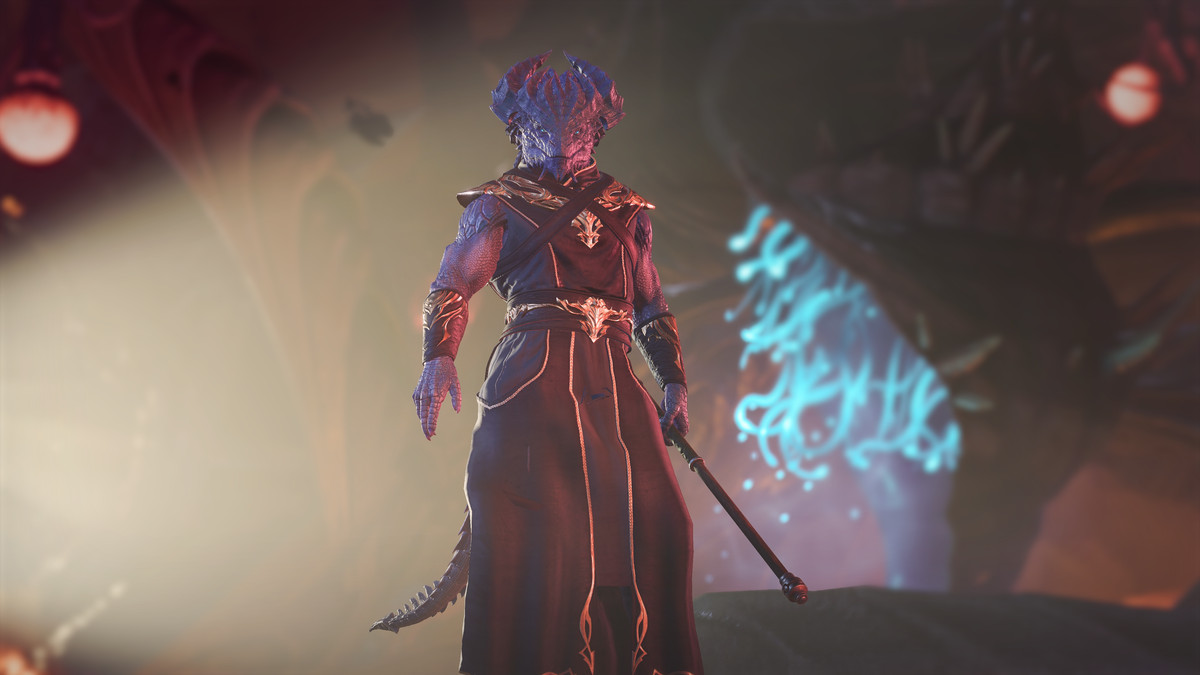
Roberts hasn’t made it far into the game yet, but I did ask how he felt about all the positive fan reactions to the Dark Urge specifically. “I am thrilled to be part of an amazing game, and a popular game, but also to be part of something that people believe is canon.” Larian recently released figures indicating that 94% of players chose a custom character, which shocked Roberts. He assumed more people would choose an origin character, because that’s what he would do. “I had no idea of the impact of my voice within this game, of that monologue of the Dark Urge, [or] of anything, really, because I’d never seen anything broken down before.”
The monologue is a huge part of scene-setting for the Dark Urge. “Lots of people refer to that monologue as being quite Shakespeare,” Roberts said. “It’s probably just me overacting, but it is, I think, because of that dilemma. And there’s an awful lot of Shakespeare in that it goes to and fro. But it’s a real pain. You imagine you don’t quite know where you’re from, and the pain that that is, but there’s this overriding feeling of something that then you have to fight. And I think it’s confusion, and almost like a child not quite knowing what to do. And so we veered into that.”
There’s also the nature of the Dark Urge: a custom class with a constant clawing evil at the forefront of its mind. It’s a character choice that not only offers the most vile things you can do in-game, but actively encourages them, and sometimes takes the decision out of your hands entirely. “It sounds really pretentious, but they are all human emotions, and parts of us that sometimes we can let out within a game,” Roberts said. “It’s a safe environment; we can do that without hurting anybody. Even if the things the Dark Urge does are in a far more extreme form.”
- SEO Powered Content & PR Distribution. Get Amplified Today.
- PlatoData.Network Vertical Generative Ai. Empower Yourself. Access Here.
- PlatoAiStream. Web3 Intelligence. Knowledge Amplified. Access Here.
- PlatoESG. Carbon, CleanTech, Energy, Environment, Solar, Waste Management. Access Here.
- PlatoHealth. Biotech and Clinical Trials Intelligence. Access Here.
- Source: https://www.polygon.com/24002568/baldurs-gate-3-dark-urge-actor-neil-roberts
- 100
- a
- About
- accomplished
- according
- act
- acting
- Actively
- actors
- actually
- after
- again
- age
- aged
- air
- All
- allowed
- almost
- alongside
- also
- Although
- am
- amazing
- an
- and
- Anything
- ARE
- around
- as
- ask
- At
- aware
- back
- baldur’s gate 3
- base
- bbc
- BE
- because
- been
- before
- being
- belief
- believe
- BEST
- between
- BIG
- Blue
- brian
- broken
- built
- but
- call
- called
- cameras
- CAN
- capture
- capturing
- Career
- case
- character
- characters
- child
- Chips
- choice
- choices
- choose
- Choosing
- chose
- class
- Classic
- close
- confusion
- constant
- could
- course
- created
- creation
- creator
- custom
- customizable
- Dark
- David
- decades
- decided
- decision
- define
- delivery
- described
- designer
- despite
- diagnosis
- dialogue
- DID
- differences
- different
- do
- does
- doing
- done
- down
- During
- each
- Early
- effectively
- emotions
- encourages
- ended
- entirely
- Environment
- especially
- essence
- even
- Every
- everything
- Everywhere
- exactly
- Experiences
- explained
- extra
- extreme
- factored
- fan
- far
- favorite
- feel
- felt
- few
- fight
- Figure
- figures
- filled
- Film
- find
- Fits
- For
- forefront
- form
- found
- four
- from
- front
- Fury
- game
- Games
- Gaming
- gate
- Get
- getting
- given
- gives
- goes
- going
- got
- great
- had
- Hair
- hand
- hands
- has
- Have
- having
- he
- head
- help
- helped
- helping
- him
- himself
- his
- horrific
- How
- How To
- however
- HTTPS
- huge
- human
- i
- idea
- ideas
- if
- imagination
- imagine
- immerse
- Impact
- in
- in-game
- Including
- incredible
- initial
- intended
- interactions
- into
- invited
- Is
- isolated
- IT
- ITS
- itself
- jpg
- just
- K
- kept
- know
- knowing
- LEARN
- learned
- less
- let
- like
- likely
- Line
- lines
- Listening
- Little
- Long
- lot
- lots
- made
- main
- make
- MAKES
- man
- managed
- many
- Marvel
- Match
- me
- means
- microphone
- Middle
- might
- mind
- model
- months
- more
- most
- motion capture
- movement
- movements
- much
- multiple
- must
- my
- narrative
- nature
- need
- needed
- never
- no
- not
- nothing
- of
- Offers
- Old
- on
- On The Spot
- once
- One
- only
- Opera
- Option
- or
- Origin
- Other
- out
- over
- overriding
- overwhelmingly
- own
- Pain
- part
- particular
- parts
- People
- perform
- performer
- Personality
- Pirates
- place
- plato
- plato data intelligence
- platodata
- platogaming
- play
- player
- players
- Playing
- plays
- Plenty
- Plus
- Popular
- popular game
- Positive
- possible
- potential
- probably
- Process
- proper
- quite
- Radio
- range
- reactions
- read
- Reading
- Real
- realize
- really
- recently
- record
- recording
- refer
- reflect
- RELATED
- relatives
- released
- responsible
- result
- right
- Rogue
- role
- Role-Playing
- room
- safe
- Said
- same
- say
- scenes
- School
- Screen
- seen
- select
- senior
- Series
- several
- shield
- shocked
- side
- similar
- single
- skill
- So
- some
- something
- sometimes
- special
- specifically
- Spending
- Spot
- Stage
- States
- Studios’
- substantial
- such
- takes
- talk
- talking
- tend
- than
- that
- The
- The Game
- the world
- Theater
- theatre
- their
- Them
- then
- they
- things
- think
- this
- those
- three
- thrilled
- time
- to
- together
- trained
- trying
- turns
- tv
- two
- U.K.
- ultimately
- unlike
- up
- us
- use
- used
- using
- various
- version
- versions
- very
- Video
- video games
- visual
- Voice
- voice acting
- VOICES
- was
- way
- we
- week
- well
- went
- were
- What
- What is
- when
- where
- whether
- while
- WHO
- with
- within
- without
- Work
- works
- world
- worse
- would
- writer
- year
- yes
- yet
- you
- your
- yourself
- zephyrnet
